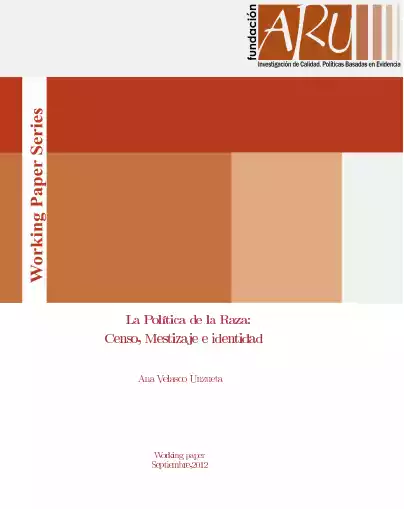
Year: 2012
Author(s): Ana Velasco Unzueta
The objective of this work “The politics of race: Census, miscegenation and identity” is to propose an alternative to the question of ethnic and racial identification in censuses that avoids this fragmentation effect and that in turn can allow governments comply with its objectives and social and political commitments, both national and international. This proposal fundamentally involves differentiating between identities and cultures and is based on the idea that public policies can be more suitable if they are directed at cultural characteristics and repertoires and not at the identities themselves. Additionally, it is suggested that the census, in addition to reflecting reality, creates it. In this sense, the census promotes a group vision of society, which implies that phenomena such as ethnicity, racism, discrimination, etc., cannot be understood without the existence of groups. This emphasis on groups fragments society into impermeable, characterizable and fixed wholes, which has negative consequences for the construction of social cohesion.



